Aldag on rebuilding a struggling Dimension Data
Head of Performance says internal competition can be positive
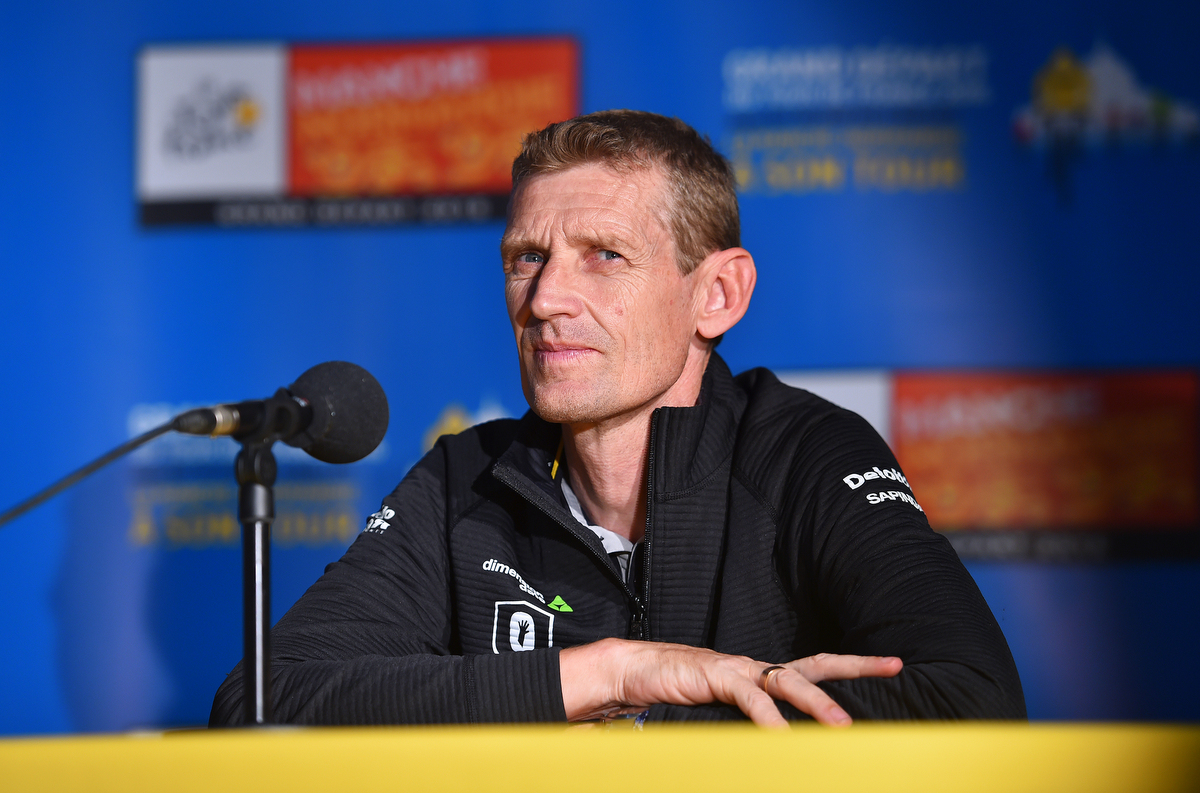
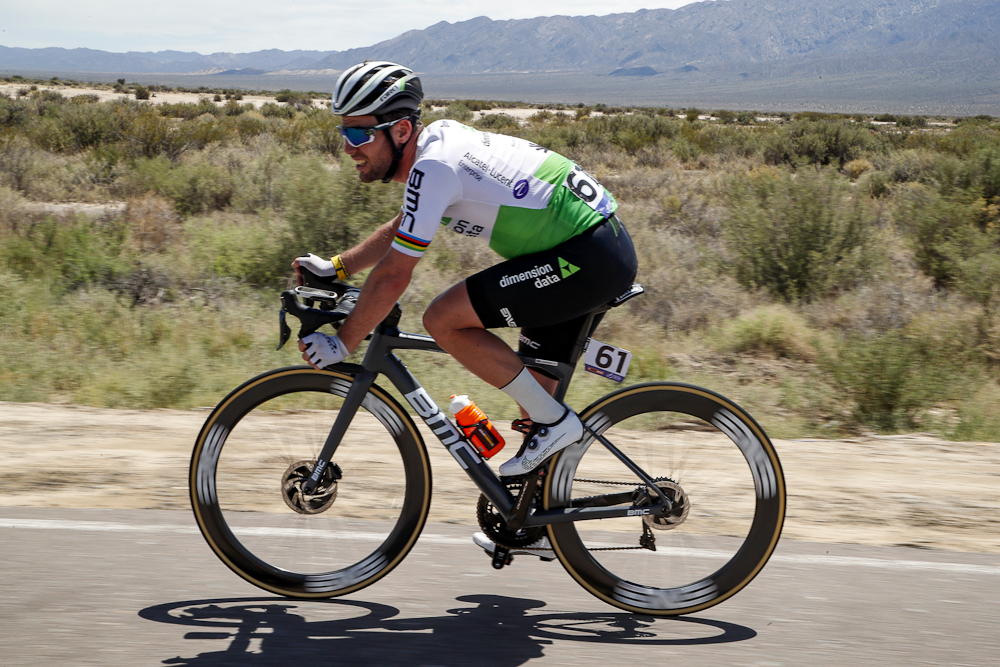
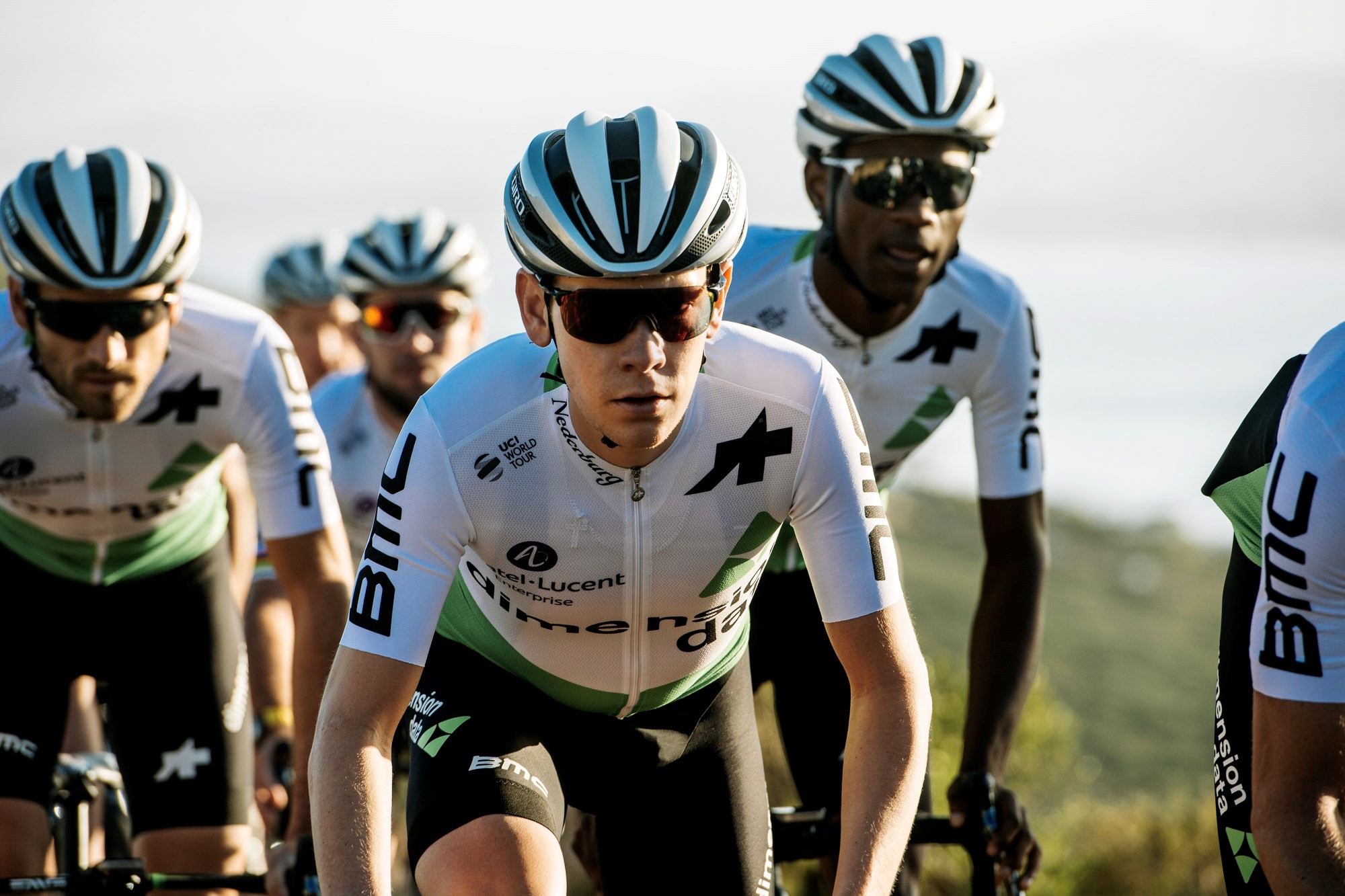
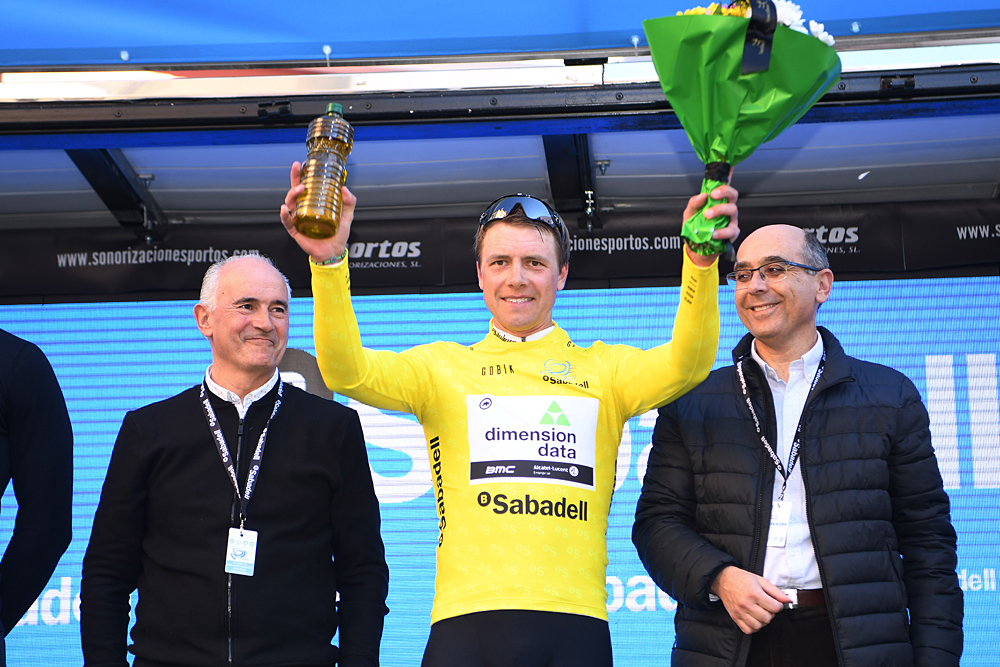
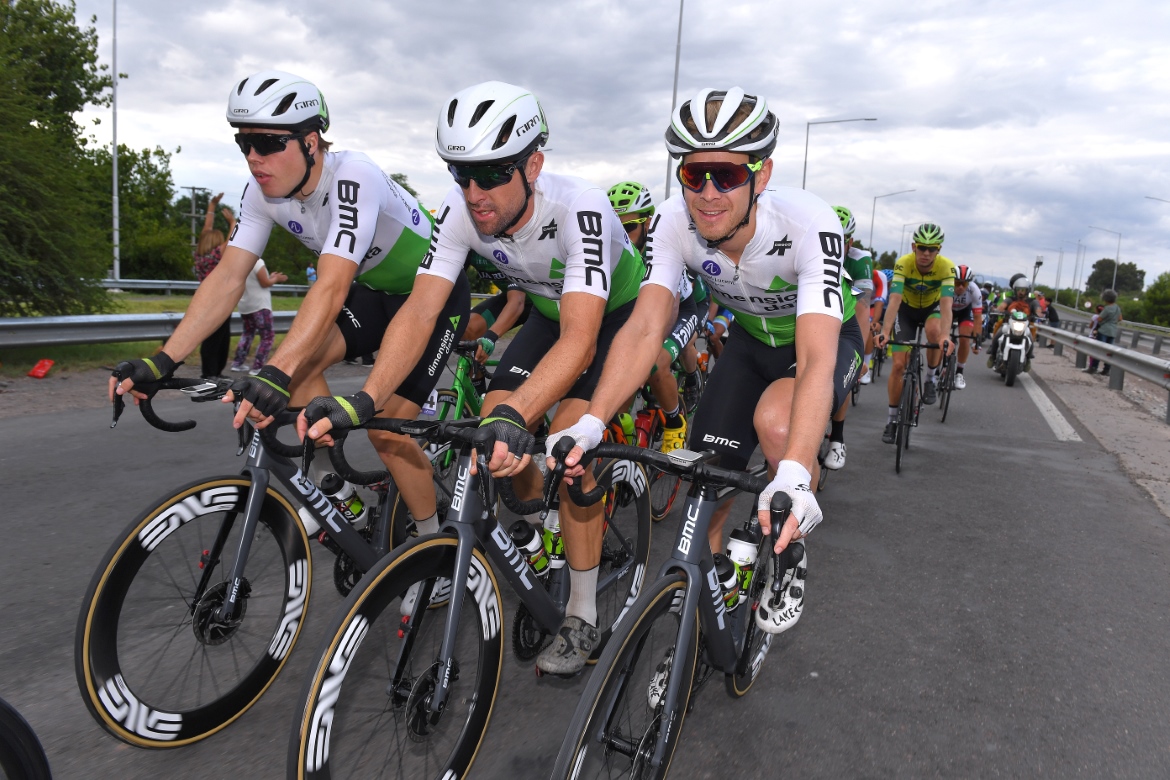
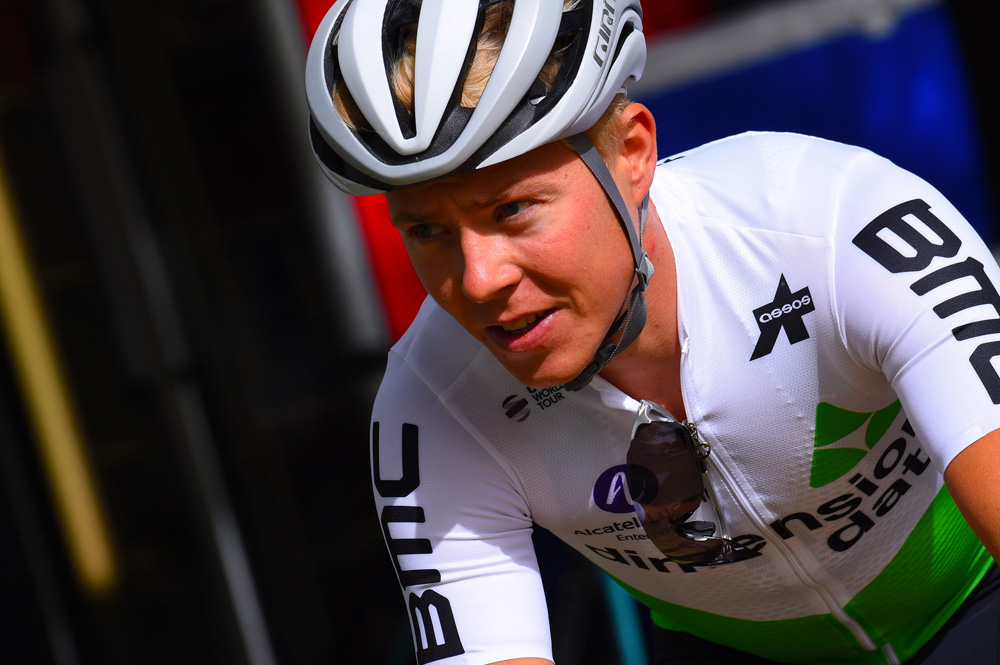
After a year that yielded just seven wins and saw their leaders underperform on nearly every front, changes were needed at Dimension Data. Step forward Rolf Aldag, who alongside Douglas Ryder, were the men with the plan to kickstart a struggling team that had fallen to the lower echelons of the WorldTour.
The challenges facing Aldag and the rest of the management at Dimension Data were huge. For one, they had endured a season in which their frontline of Mark Cavendish, Louis Meintjes, Steve Cummings and Edvald Boasson Hagen had failed to produce a single WorldTour win between them.
A drop in performance from their leaders only highlighted the lack of depth within the rest of the team, and without the two stage wins at the Vuelta a España, courtesy of Ben King, the team would have gone an entire season without tasting WorldTour success. Throw into the mix a lack of fit and experienced captains, riders calling out the team's equipment in public, a star sprinter out of contract, and a responsibility to support African talent, and Dimension Data’s task looked insurmountable.
"Most of all we needed stability in our racing," Aldag told Cyclingnews during a series of conversations during the off-season that started in September and ran until late November.
"So last year we'd have maybe Edvald in a race, but the rest of the guys were a bit more random. We needed to get to a point where we had five or six stable guys. If you have some jokers, that's fine, but you need to be able to predict the results from your riders more."
At times, Dimension Data appeared to be racing with one hand tied behind their back in 2018. With Cavendish on the tarmac more than on the podium, Eisel out injured and Cummings pushed and pulled from race to race, the team was stretched too thinly. The first task was to solidify their core in the transfer market.
With roughly half the roster out of contract, the management at least had wiggle room to invest. They targeted the highly talented Michael Valgren almost as soon as they heard that the Dane was on the market, while Roman Kreuziger and Enrico Gasparotto followed 'officially' after the Tour de France. While one could point to the fact that all signings filled the podium at Amstel Gold Race last year, the reality is that they provide very different skillsets.
Get The Leadout Newsletter
The latest race content, interviews, features, reviews and expert buying guides, direct to your inbox!
In Valgren - a rider Aldag had been keeping close tabs on for three years - the team has a rider who can perform on a number of terrains and who could be future a world champion if his ride at the Innsbruck Worlds last year is anything to go by.
Kreuziger comes with the ability to compete in one-day races, but also provides much-needed mountain support to Meintjes in Grand Tours.
Gasparotto - although nearer the end of his career than the start - gives the team another communication channel within the peloton and takes pressure off the directors when it comes to issuing instructions to the less experienced riders.
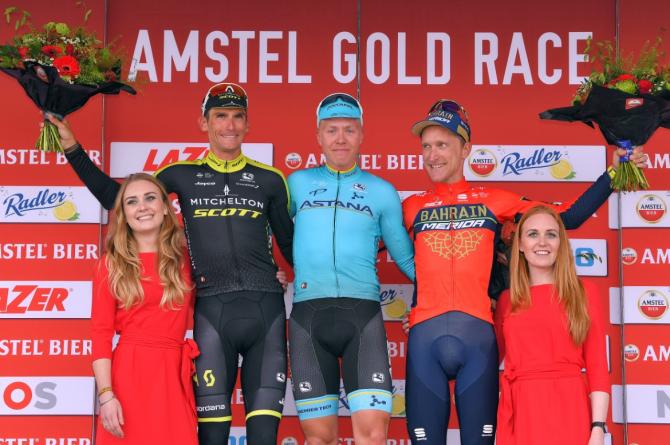
"The quality on the bike and leadership have come up another level. Michael is still young, but he knows what he wants. Roman is definitely a guy who is one of the most professional riders I've ever met. He really is one of the role models of professional cycling. That really helps," Aldag says.
The team's second row was also strengthened. Danilo Wyss and Lars Bak - who Aldag knew from his Highroad days - are two highly underrated domestiques, while the move for Giacomo Nizzolo provided both extra cover in the sprints and a fresh pair of legs for Cavendish in the lead-out. The team also looked at Niki Terpstra, but a deal couldn't be reached.
"Giacomo is definitely a sprinter, not just a lead-out guy, and we want to see how far he gets. He's had difficult times, but I see them in multiple ways. He was leading out for John Degenkolb most of the time at Trek, and when he was sprinting he was mostly alone.
"Look at Viviani at Sky," Aldag says as a way of comparison. "He was a good rider - no one ever questioned that. But he also didn't win 18 races at Sky. And then suddenly he comes into an environment where they look after sprinters, they have a plan, they give him a chance and build a train around him. So, I think Giacomo wants to prove himself, and he has a team that believes in him. But first, we need to help him recover from his knee injury."
It's unlikely Nizzolo can match the winning streak that Viviani produced in 2018. He's not the Olympic Omnium champion, and, with all due respect, Dimension Data is not a lead-out force in the same bracket as QuickStep. But as Aldag points out, Nizzolo picked up more WorldTour points in two months of the 2018 season than Dimension Data did in the first half of the season. He is ultimately an improvement.
The balance between points and the development of African talent
Another important element in the recruitment drive was the hunt for crucial ranking points. Given that Dimension Data have regularly struggled when it comes to the GC at races, and that the UCI's points system is tilted towards the overall standings in races rather than sprints, the team was always struggling to keep up with squads decked with top-10 regulars.
"Only a few teams can pay for the second row of winners," Aldag says.
"The rest of the teams live and die by their captains, but you also need to look at the UCI system. If they had enforced the relegation system, we'd have been out the last three years. Valgren had more points last year than we did as a team."
If points are the currency of success within modern cycling, then Dimension Data's desired aim of developing African talent remains their dream. However, reality can be harsh, and the simple fact is that the team has not been able to produce consistent performers from their home continent.
The numbers back this up. In 2015, in the team's final season at Pro Continental level, the squad signed 24 riders, from which nine were South African, while a further five were from other African nations. Fast forward to 2019 and the roster has grown by three, yet there is one less South African and only one rider from another African nation. It's a delicate matter, and few professional teams work as hard as Dimension Data at establishing roots within a home community and provide a charitable outlet as a result. For that, the team should certainly be applauded.
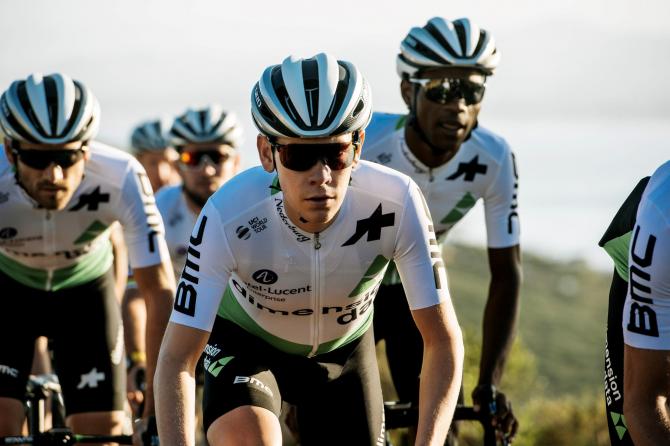
"Our big focus is Qhubeka, but we have to support them by showing quality in races and not just quantity," Aldag says.
However, idealism doesn't reward a team with ranking points and security. And for all the goodwill, there simply isn't enough time for the team to bring through as many African riders as they perhaps would like. For all the sport has done to globalise itself, it's still incredibly difficult, even from a logistical point of view, to secure visas for African riders at races such as the Tour Down Under or the Tour of California, for example.
However, Aldag justifies the team's stance with the fact that a win for the team will always lead to greater rewards for the Qhubeka cause.
"We can't say out of principle that we'll have 50 per cent African riders. There is a need for points, the need to perform on the road, but also the need to perform for Qhubeka. If we go to the Tour with a full African team, there would be some really nice stories, but after stage 1, it's all about how you do against the other riders. The next story would be on the rest day and about how we have some guys still fighting to survive until Paris.
"But if you look at 2016, Cavendish won and wore yellow. He donated and auctioned his first ever yellow jersey, which was good to donate 260 bikes for Qhubeka. You can put that in numbers. Every time we win a bike race, you see a spike in donations. Get into the headlines, then bring your message."
Securing a future with Cavendish and Eisel
Away from the new signings, the team were desperate to keep hold of Eisel, even with his advancing years and the uncertainty after his early-season head injury last year. Mark Renshaw was also given a new deal, while the future over Cavendish remained unclear until the late winter.
The sprinter's plans were linked to Eisel, and there was genuine talk of a move that would have taken the pair to Bahrain-Merida. Although the Bahrain-Merida management were somewhat lukewarm on the idea - they had already signed Phil Bauhaus - they held two spots for the sprinter and the Austrian in case their new sponsor, McLaren, pushed for the pair to form part of the company's wider sponsorship commitments.
Aldag played no part in the Cavendish negotiations, but the German was always keen on the sprinter remaining within Dimension Data. However, by the point at which a deal was finally struck, most of Dimension Data's budget had been soaked up in the pursuit of other transfers - such as Valgren - but Aldag was keen for everyone, including Cavendish, to move in the same direction.
As far as Aldag was concerned, re-signing Cavendish was only part of the puzzle when it came to improving the team.
"Absolutely, and Bernie was one of the most important riders we re-signed. Internally, the riders look up to him and I think we're going to have to figure a way over time of finding a replacement. He gives all his know-how and passes it on.
"When it came to Mark, it was between him, Douglas and Dimension Data. But we know that there were alternatives for Mark and the team. So, ultimately, there was a lot of waiting from both sides. Did he want to change team and were there going to be changes in the team? So that's why it took so long - to make sure it made sense for both sides."
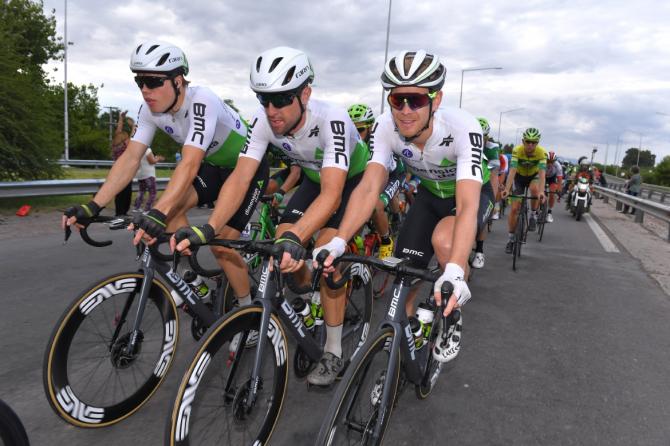
Cavendish wasn't the only star the team looked to rally around as the new season approached. Louis Meintjes was given a substantial contract to re-join the team from UAE Team Emirates at the end of 2017, but his first season back was an unmitigated disaster. The South African finished inside the top 10 in just one stage race he started, while his two Grand Tour efforts in Italy and Spain resulted in a DNF and 58th overall.
Aldag admits that collective mistakes were made throughout the year and that the team effectively tried to alter an already successful formula with new methods in relation to the rider’s training and race programme. Too much time was spent at altitude camps, racing blocks were too long and too demanding, and by the time Meintjes was meant to hit peak form, he was drained.
"I think his preparation was too ambitious," Aldag admits after a year of hard knocks for the 26-year-old.
"He had a super-positive attitude and knew where he wanted to kick ass. And there was this mentality of doing everything 20 per cent better, and that would result in a podium at a Grand Tour or even two Grand Tours. And because of that, I think it was overdone. He should have started slower and not gone too extreme. And that was not just his own mistake but also the team's.
"He went to altitude training above 3,000m and came back super light. He did Algarve, Tirreno, Catalunya, and went to altitude again, but we didn't really give him the chance to recover. Then he went straight into the Tour of the Alps and then straight into recon for the Giro mountain stages. It was too much, too ambitious."
A new dawn in 2019
On stage 1 of the Volta a la Comunitat Valenciana on Wednesday, Edvald Boasson Hagen took a shock win. It was the Norwegian's first time trial victory outside of a national title since the Tour of Qatar in 2016. With the fact that the UCI’s ranking system now rolls over points from 2018, and has incorporated races outside of the WorldTour, Dimension Data are on far more stable ground.
Cavendish is building up slowly in South America, Valgren is racing without pressure, and the rest of the team are waiting in the wings for their opportunities. The new depth within the team, coupled with the chance to wipe the slate clean and start again, is clearly paying off.
"If you look at our signings, they are multi-talented. Valgren can win a stage at the Tour de France and Kreuziger can also win at big races," says Aldag.
"What does work is a little bit of internal competition, in a positive way. At Highroad, when Andre Greipel won in Paris-Nice, you could bet your life Cav would win the next day in Tirreno. It's not racing against each other - it's just getting more out of it and lifting team spirit. The race programme is so heavy - we race around 280 days or something - that you want to be present and competitive in multiple events at one time, and then we can add up our resources and bundle them together for the really important stuff. I think we can be competitive now in multiple events."
Daniel Benson was the Editor in Chief at Cyclingnews.com between 2008 and 2022. Based in the UK, he joined the Cyclingnews team in 2008 as the site's first UK-based Managing Editor. In that time, he reported on over a dozen editions of the Tour de France, several World Championships, the Tour Down Under, Spring Classics, and the London 2012 Olympic Games. With the help of the excellent editorial team, he ran the coverage on Cyclingnews and has interviewed leading figures in the sport including UCI Presidents and Tour de France winners.
